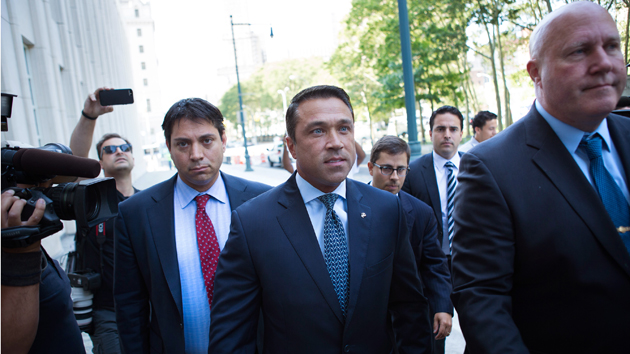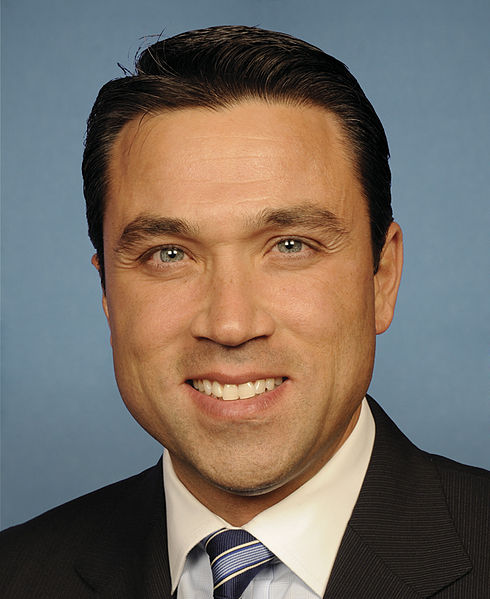
Matt Rourke/AP
The Department of Justice dropped 29 federal racketeering charges on Rep. Chaka Fattah (D-Pa.) and a handful of close associates this morning, claiming that he diverted campaign and charitable funds to cover the cost of a failed mayoral run and to pay off his son’s student loans. Investigators have been circling Chattah for years. Last year, a top aide pleaded guilty to helping Fattah divert the money towards his son’s student loan debt, and Fattah’s son is awaiting trial on federal charges of his own in connection to the scheme.
Fattah is the second Democratic member of Congress to be indicted on corruption charges by the Department of Justice this year. New Jersey’s Sen. Bob Menendez was indicted in April, stemming from accusations he helped a campaign donor obtain benefits from the federal government in exchange for favors. Fattah, who was first elected in 1995, is the third sitting member of Congress to be indicted on corruption charges in the last two years. Former Republican Rep. Michael Grimm (R-N.Y.), who represented Staten Island, was charged with fraud and tax evasion in April 2014 and was sentenced to eight months in prison earlier this month.
In this case, Fattah and his associates face a slew of charges, including mail fraud, bank fraud, and money laundering. In announcing the charges, the DOJ assembled a laundry list of alleged misdeeds, including:
- Using a secret $1 million loan from a wealthy supporter to back his 2007 run for mayor of Philadelphia.
- Repaying the donor’s loan through a nonprofit Fattah controlled that had received funding from the federal government.
- Attempting to steer a $15 million federal grant to a political consultant who Fattah’s campaign owed $130,000.
- Using campaign funds to pay a consulting company, which then paid off $23,000 in student loans for Fattah’s son.
- Taking an $18,000 bribe from an associate in exchange for attempting to secure him an ambassadorship and masking the bribe in the form of a fake car sale.
Fattah and his alleged co-conspirators could face decades in prison if convicted.
Fattah represents Pennsylvania’s 2nd congressional district, an overwhelmingly Democratic district that encompasses much of the city of Philadelphia and its close suburbs. Despite his son’s indictment and the guilty plea by his aide last summer, Fattah easily won reelection last fall with 88 percent of the vote.













